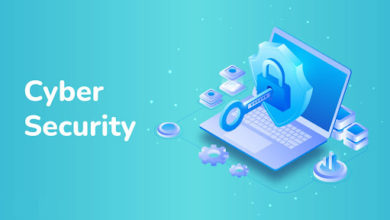Internal Audit: The Best Ally to Cybersecurity
KEY TAKEAWAYS
Businesses have a wide range of assets to protect in today’s digital environment. The evolving threat landscape has made cybersecurity a big concern in different organizations. Today, everyone in a firm, including internal audit teams, ensures a company is safe from cyber threats.
But then, internal audit teams face different challenges when protecting business assets. This means that they have to be increasingly vigilant to play their cybersecurity role. In this article, we look into the challenges that internal audit teams face in cybersecurity and their role in data protection.
Read on to find out.
Internal Audit and Cybersecurity
The data security threats that loom on organizations make it vital for various teams to collaborate. For instance, internal audit teams can play a significant role in ensuring there’s proper security. They can do this by helping with threat detection and identification and ensuring continued cybersecurity.
Internal audit teams can help examine the controls, policies, and procedures put in place by security teams. They can also review the effectiveness of the security tools that organizations use. One perfect way a business can protect its systems is by using a blazing seo residential proxy.
Residential proxies are tools that help businesses to ensure online privacy and security. Although they are effective, proxies can sometimes fail to deliver to expectations. However, this depends on the type of proxy and the reliability of the vendor. Internal audit teams can help businesses analyze their proxies.
In addition, businesses need to adopt an integrated approach when dealing with cybersecurity. This is an approach that ensures consistency in the manner risk, threats, and controls are reported. Internal audit teams can contribute to ensuring that this consistency exists within the business.
Last but not least is ensuring that there’s a collaboration between internal audit and other teams. This is because cybersecurity cannot be a reserve of specific units within organizations. Audit, security, IT, and other departments must come together for a firm to achieve its cybersecurity goals.
Proper communication and coordination among teams are vital for better efficiency. It all starts with the building of a robust relationship between various factions in an organization.
What Areas Should Internal Audit Teams Focus On
As discussed earlier, everyone plays a role in ensuring an organization is secure. Internal audit teams have a role to play in this, and they have focus areas that relate to the five main cybersecurity components. Let’s see how internal audit teams can contribute to each element of organizational security.
-
Detection
Threat detection is one of the most vital steps in the cybersecurity process. Businesses rely on different sources to know when something is awry and take steps to prevent it. One of the most reliable ways to find out if there’s a threat is using good data analytics.
Internal audit teams have a significant role to play in helping businesses detect any threats. These teams can incorporate data analytics and other forms of technology to make threat detection easier. This makes it possible to prevent hazards and save businesses from losses.
2. Protection
Businesses can be vulnerable at different points. For instance, companies that use many third-party contracts and bring-your-own-device policies tend to be more vulnerable. Identifying vulnerabilities and sealing them before a significant loss happens is one of the most important things for such businesses.
Business protection is also a collective effort between different teams in an organization. Internal audit teams can contribute to business protection efforts in various ways. For example, they can help audit security systems then assure IT and security teams that everything is fine.
3. Crisis Management and Communication
Crisis management is a lengthy process that involves various steps. It includes how prepared a business is to respond to a crisis and communicate it to everyone it affects. Good crisis management positively impacts the trust between a company, its customers, and employees.
Internal auditors have a role to play in ensuring proper crisis management. They can help by assessing the preparedness of a business to manage a crisis. Their analysis can be critical for companies by assisting them in planning how they can respond to a problem in the future.
4. Business Continuity
Many businesses have shut down because of financial losses resulting from cyberattacks. Business continuity after a previous attack relies on how well you can predict the future. Internal audit is among the teams that can contribute to proper planning to help prevent future attacks.
Internal auditors have a better chance of helping businesses plan their cybersecurity better. They can help determine the various risk scenarios that these businesses should be aware of when ensuring safety. Besides, internal auditors’ reports can help enterprises to solve their current security problems.
5. Continuous Improvement
It is vital that businesses continually improve their systems to ensure that they deal with future attacks. This starts with how well these businesses understand the extent of the scope of work they have to do. Internal audits can play a significant role in ensuring that there’s continuous improvement.
They can help review the cyber preparedness of a business then advise their IT and security teams. For instance, internal audit teams can look into the strategies and protocols that can help them prevent attacks. This helps ensure that the businesses can prepare well for future threats.
Final Thoughts
Organizations are increasingly becoming aware of their cybersecurity needs. The complexity of the threat landscape has been the main nightmare for businesses today. This is because cybercriminals keep changing their tactics and companies lack sufficient skills within their workforce to prevent it.
Businesses must ensure that their employees have the right cybersecurity skills. This includes training all their teams to be aware of potential threats and how to avoid them. However, they should not limit their cybersecurity training to security and IT teams. Everyone needs the skills to deal with attacks.
One of the teams that need proper cybersecurity training is the internal audit unit. This is because internal auditors can help with assessing the existing security frameworks. They can also help evaluate the effectiveness of the cybersecurity efforts put in place to ensure future security.






